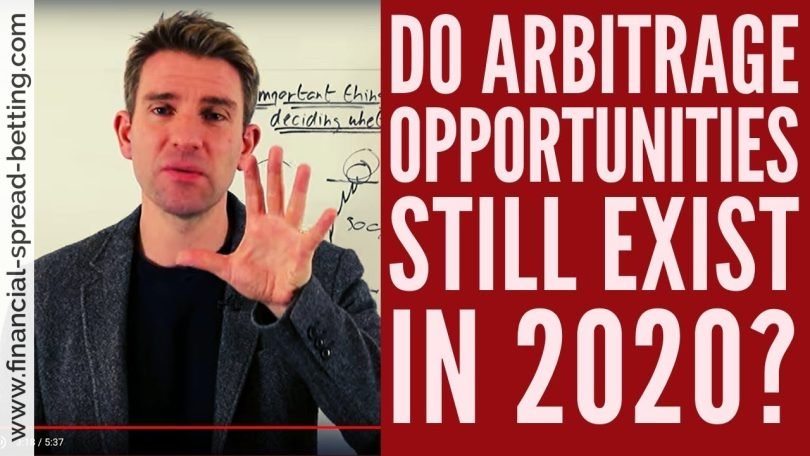Q. Why do spread betting bookies hate arbers?
A: Simple. Spread betting providers don’t like arbers because, in the long run, they always win and the bookmaking industry always loses. No company is so arrogant as to believe that the spread they make is always correct, and that they are always going to end up on the right side of a client taking advantage of arbitrage opportunities. It’s a straightforward transfer of wealth from the two bookmakers involved to the arber. In the long run each bookmaker will end up wearing half the loss.
Q. Why is arbitrage trading not recommended?
A: Simply because it is a hard way to make money:
- Bookmakers will close you down if they suspect you of arbing them. It is not hard for them to identify you as you only bet on standout prices.
- Arbitrage opportunities only last a few minutes as the markets are very efficient and therefore your chances of identifying and taking advantage of such arbing possibilities are very small.
Q. Are the markets really so efficient that any pricing inaccuracies are swallowed by x thousand hedge funds in an automated fashion?
A: I’m familiar with the argument, but I think it entirely fallacious – for reasons of scale.
In order to start a successful large-scale hedge fund, one needs to have a pretty nifty idea that is ahead of the pack…but I don’t think the same is true for individual investors. By analogy, I made my part-time pocket money as a teenager by exploiting the market for second hand word processors. I discovered that the PCW had a common fault with a variable resistor (costing £1 to replace) and, when it broke (usually just outside warranty) the entire system appeared dead…and the well-off would replace it…leaving them with junk that they’d happily sell for £20 – in spite of hoards of people willing to pay £200 for a working one. This wasn’t a genius idea that would warrant a new business; it wasn’t a revelation that could improve Sir Allan’s fortunes – but it was a step-up from shovelling dirt for £1.25/hr picking potatoes or shovelling dirt for a landscape gardener. I think something similar happens with investment.
Strategies to yield millions-to-billions are extremely hard… and that is why (IMHO) managed funds have tended to under-perform index-trackers. Strategies to yield thousands – I think – are remarkably more numerous and easier to find. It is not about competing with investment banks and full-time professionals…it is about competing with random…which is a much easier task. Small investors, for example, can be far more agile…going back to the “2000-sell; 2003-buy; 2007-sell” strategy, this cannot work for a large institutional investor – since they cannot liquidate their entire positions without moving the market significantly lower and loosing value from their portfolio. Large investors are far more constrained than individual investors – and this can be exploited IMHO.
Q. Some of the problems will affect end of day traders less than intraday traders. How is that?
A: An example of a problem affecting end-of-day traders less than Intraday traders would be things like 1 or 2 pip re-quotes. I mean, if they re-quote you 1 or 2 pips (which does happen unfortunately) and you are a swing or long term trader then it can be annoying but you don’t really care that much. If you are only going to hold it for a short time then 2 pips may be more significant.
Also, things like an asset temporarily not being traded for whatever reason is far more troublesome (generally) for an Intraday short term trader than an end-of-day trader.
An example that can affect both end-of-day traders and Intraday traders in the same way would be an artificial price spike (a sharp and temporary spike in price that is not experienced in the underlying asset) that knocks out a load of stops.
It is my opinion that spread betting is more suitable for people working on slightly longer time frames as these problems just become less annoying.

